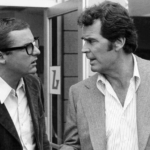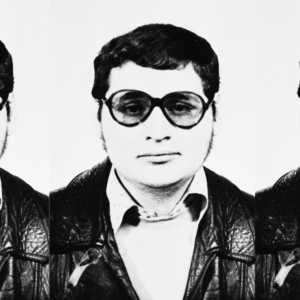
Having No Time is the Best Time to Get Writing Done
Jessie Greengrass on Writing in the Cracks of a Busy Day
Written into our culture is the idea of the writer as adventurer, or the writer as rake. It isn’t enough that a person should strive to write interesting things. They ought also, we feel, to have an interesting life: to flash and yearn and travel intemperately, to artfully unspool (but how, I wonder, do they ever get anything done?).
I am—insofar as I am anything at all—a writer of fiction: a maker-up of things, someone who repurposes, taking elements of reality and twisting them out of shape. I also have two small children. A garden. I do a lot of washing, and go to bed at half past nine. Where creative transports ought to go, there are only 500 solid words on the page each morning and the nursery run. I am ashamed.
Of course, if we expect our writers of fiction to be as interesting as their work, and if we suspect, somewhere deep down, that people with ordinary lives will only ever be ordinary writers, then we will be given what we deserve: books by a small minority, mostly male, mostly white, mostly middle-class, mostly without families, who can afford to spend their lives doing nothing else. The rest of us—the majority who have to fit writing around whatever it is that lets us eat, or for whom writing is a route to eating and must therefore be done regardless of the presence of that dilettante, desire—will only ever, perhaps, be second rate.
For a while in my twenties my life was chaotic. This was a phrase overheard in the offices of doctors, or read on diagnostic questionnaires: a shorthand for a particular kind of hand-to-mouth irregularity, for the fact that I drank too much and kept all my post, unopened, in bin bags under the sofa. There was no order to my time. I acted to the demands of a mundane unhappiness which promised it might be sated if only I did this, ate that, went here. Perhaps someone else might have been able to make something of it—might, in the telling, have made it all less grubby, more significant, instead of what it was, which was relentless and awful. I was barely capable of getting dressed, let alone undertaking the work necessary to write something well.
I slept 16 hours a day and spent most of the rest with my eyes shut, listening to a version of the world play out through the radio and wondering at how far away it seemed, how little it had to do with me. Getting from one end of an hour to the other took all my resources and there was no energy left to write; or if there was—if I was suddenly taken with the idea of myself as artist, typing away late at night and drinking, of all things, schnapps—then there was certainly nothing left for the nine tenths of the work that comes later: the editing and revising, the careful striving after clarity. What had seemed, at 3am, to soar, now showed itself as nothing more than the clanging of all first drafts, and, without the framework to stick at it, I gave up in disgust.
This thought then, now, still: that it is a lack in me which made those years not transformative, but lost. If only I were touched with something greater than this solid, ordinary talent which looks so much like skill, then I could have done better. After all, skills can be learned, practiced and improved; and surely anything which requires an act of effort must be less than something which comes fully formed, scrawled in its perfect entirety onto the nearest sheet of paper while some fuller, brighter version of life rages onwards. Don’t trust these thoughts. Anyone who says they don’t have to work at what they do is lying through their teeth.
*
There are as many ways of writing as there are people who write, but this is my way: by routine, because I have to, because it’s my job, because things are worse if I don’t. I am awake by 6:30, tipped into the morning by the enthusiastic rousing of my children, who come to each day as if it were the only one they had, and by 7am I am at work, still in my pyjamas, in whatever corner of the house is quiet. My partner brings me coffee. At 9.30 he needs to be at his desk and so at 9.27 I stop work, take over the children; and then there is the laundry and the cooking, the picking up of items from the floor, and all the other small battles in the war against grot which children entail. Often, during my two and a half morning hours, I feel that I am trying to wrestle with my conscious mind, to hold it to task when it would prefer to wander, but I can’t wait for inspiration and must rely on the incremental growth of words ground out across a page.
Without set hours, without external demands on my time, while I might seem more free, I think it would be at the expense of everything, because I would get nothing done at all.
Without set hours, without external demands on my time, while I might seem more free, I think it would be at the expense of everything, because I would get nothing done at all. I would drift, and wait, and time would pass, and I would feel, increasingly, as though I had failed. Besides, I love the pattern days have, the way they turn. At the moment my days have the rhythm of nursery runs and naptimes, lost shoes and park trips, and it is not only that the things are necessary in and of themselves, but that I find them, or some version of them, necessary to my work; and, more, at times they are a joy.
Sometimes, stood down the garden with the washing waiting to be pegged, knowing where I will be at each hour of the day, I feel myself rise. The church bell rings across the road. The baby cries. Twenty miles south of here, and thirteen centuries ago, Eadfrith of Lindsfarne illuminated a text of the gospels. I imagine, sometimes, the labor involved, and how it must have been fitted to a routine of prayer and daylight. I think of each pigment made from scratch, each page prepared, pricked out, and how slowly the letters must have grown across the 516 sheets of vellum. For the ten years or so it took to make, he would have risen each morning the same and set about his day, his work a consecrated act and its product given value by the time it took, his routine and his productivity entwined.
Jessie Greengrass
Jessie Greengrass was born in 1982. She studied philosophy in Cambridge and London, where she now lives with her partner and child. Her story collection, An Account of the Decline of the Great Auk, According to One Who Saw It, won the Edge Hill Prize 2016 and a Somerset Maugham Award, and she was shortlisted for the PFD/Sunday Times Young Writer of the Year. Sight is her first novel.

















